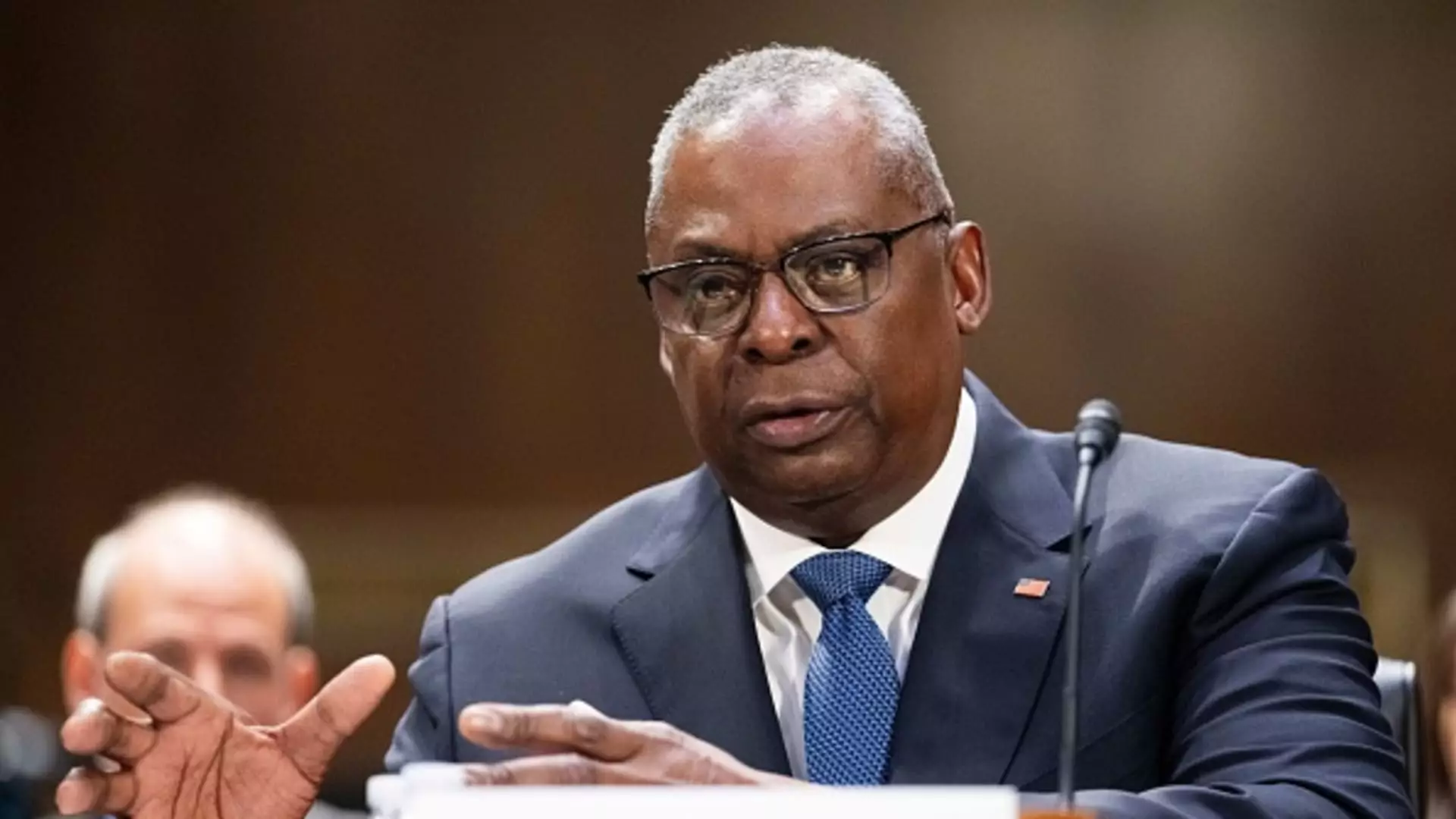In a surprising twist of events this week, Secretary of Defense Lloyd Austin was hospitalized, causing concerns and a lack of clarity in the White House. Austin spent four days in the intensive care unit at Walter Reed Medical Center, leading to questions about why the news was not disclosed to senior officials in the National Security Council until three days after his arrival. The delay in transparency has raised eyebrows and left many wondering about the severity of Austin’s condition.
Unfortunately, details about Austin’s illness were unavailable, leaving the public in the dark. It remains unclear when he will be released from the hospital, further adding to the uncertainty surrounding his condition. Pentagon press secretary Maj. Gen. Pat Ryder stated that Austin had “resumed his full duties” on Friday evening, but his continued hospitalization on Saturday suggests a more serious situation than initially indicated. The lack of transparency from the Pentagon regarding the nature of the illness and the date of the elective medical procedure only adds to the confusion.
With Austin unable to fulfill his duties, Deputy Secretary of Defense Kathleen Hicks stepped in to pick up the slack. However, it was revealed that Hicks was on pre-scheduled leave at the time of Austin’s hospitalization, vacationing in Puerto Rico. While she maintained communication with the Department of Defense (DOD) staff and monitored day-to-day operations, the absence of both Austin and Hicks during this critical period highlights potential vulnerabilities within the leadership structure of the Pentagon.
Additionally, the office of the under secretary of defense for policy, the third-highest civilian position in the Pentagon, is currently occupied by an acting official, Sasha Baker. The delay in confirming nominee Derek Chollet by the U.S. Senate leaves this crucial position temporarily unstable. In the face of mounting geopolitical tensions, it is imperative to have a fully appointed and confirmed leadership team in place to address national security concerns effectively.
The Pentagon’s refusal to disclose the specific condition that prevented Austin from carrying out his duties raises further questions. The lack of transparency has left room for speculation and has impacted public trust in the situation. When asked about the decision to keep Austin’s hospitalization under wraps, Ryder cited the need to consider multiple factors, including personal privacy. However, the opaque handling of the situation has only fueled speculation and created more uncertainty.
Amidst Austin’s hospitalization, tensions in the Middle East continue to escalate. The U.S. conducted a rare and controversial strike against a senior Iranian-backed militia member in Baghdad. American bases in the region have been targeted at least six times, while the Biden administration contemplates options to strike Houthi militants in response to their continuous attacks on ships in the Red Sea. The Israeli-Hamas conflict also adds to the already heightened sense of instability.
The situation is further complicated by the actions of Iran-backed Houthi militants based in Yemen, who have been targeting container ships in the Red Sea in response to Israeli attacks on Palestinian communities. The U.S. Navy responded by shooting down Houthi missiles and sinking three small boats in an effort to protect container ships. As tensions rise and regional dynamics become increasingly complex, the U.S. is wary of exacerbating the situation and becoming further entangled.
In times of uncertainty and escalating tensions, it is crucial for government officials to communicate openly and transparently. The handling of Secretary of Defense Lloyd Austin’s hospitalization raises concerns about the wider ability of the Pentagon to effectively manage and respond to national security challenges. As the situation in the Middle East continues to evolve, a clear and unified leadership structure is paramount to ensure the safety and well-being of both the American people and global stability.


Leave a Reply